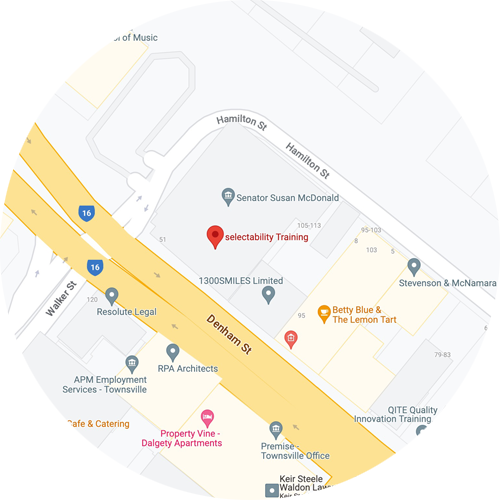- Students must be at least 18 years of age
- Complete the pre-entry Language, Literacy and Numeracy (LLN) indicator assessment.
- Students working with children and adults with a disability (in a funded program) must have a Blue Card and Yellow Card Exemption.
- Students must produce a current National Police Check with ‘discloseable’ outcomes presented to selectability Training, prior to placement. Students may apply for a Blue and Yellow Card Exemption at the time of enrolment.
CHC43515 Certificate IV in Mental Health Peer Work
Do you have lived experience in mental illness and want to use that experience to make a difference in other people's lives?
This qualification is for existing workers in the community services and health industry who have lived experience of mental illness as either a consumer or carer, and who work in mental health services in roles that support consumer peers or carer peers.
Career opportunities include:
Peer mentor
Advocacy Worker
Education Officer
Youth peer worker
Consumer consultant
Aboriginal peer worker
This course is a Nationally Accredited course and is considered an approved course for Centrelink student payment purposes. You may be eligible to receive student payments, for more information see https://www.servicesaustralia.gov.au/education and contact Services Australia directly.
Duration
12 Months (Full Time)
18 Months (Part Time)
Delivery
Online (Supported self-paced)
Weekly Masterclasses & Lectures
Course Frequency
Rolling Enrolments - Start at any time!
Course Fees
Subsidised - $600 (Qld only)
Subsidised Concession - $400 (Qld only)
Full Fee - $4,500
Work Placement
80 hours
Course Requirements
Entry Requirements
Training commitments
Course duration: 12 months (full time), 18 months (part time).
Placement: 80 hours of work placement required
Delivery mode: Online, supported self-paced
Access to learning
selectability Training provides all learning resources via its modern and easy-to-use Learning Management System.
To complete this course, we suggest that each potential student has basic computer skills such as sending an email, using a printer and scanner, using Microsoft Office programs, and internet skills to undertake online research.
Online study requirements
In order to successfully complete a self-paced course it is recommended you have access to the following:
- Stable internet connection with a minimum download speed of 3mbps.
- An email account – can be created through Yahoo, Hotmail and Gmail,
- Microsoft Office (2010 version or later) – must include Word, Excel and PowerPoint
- Current version of a web browser such as Google Chrome or Mozilla Firefox,
- Latest version of Adobe Reader,
- Desktop computer, laptop or tablet.
- Printer and scanner (optional)
Subsidies & payment options
Queensland Government subsidy
You will no longer be eligible for a government subsidised training place under the Higher Level Skills program once you complete one certificate IV level or higher qualification.
Higher Level Skills Funding
The Higher Level Skills program aims to assist eligible students to gain the qualifications they need to obtain secure employment, advance their career or transition to university studying priority industries. Employers in priority industries may also be able to use this program to up skill their workforce to address workforce skills gaps.
Eligible students may be able to access government assistance to complete a Certificate IV or above in an identified high-priority study area.
For this course the subsidy could bring your cost of study down from $4,500 to $600 or $400 (concession).
Higher Level Skills Funding eligibility requirements
- must be a Queensland resident;
- aged 15 years or over who is no longer at school (with the exception of VET in Schools students) and is an Australian or New Zealand citizen or Australian permanent resident (including humanitarian entrants), or a temporary resident with the necessary visa and work permits on the pathway to permanent residency;
- must not have a certificate IV or higher-level qualification, not including qualifications completed at school and foundations skills training.
Ask your accountant whether you are eligible to claim your education expenses as a tax deduction.
How and when fees are charged
Subsidised training
The student co-contribution fee is charged upfront prior to enrolment, or by agreement we can offer a payment plan whereby you pay over 4 equal payments. The co-contribution fee is divided by the number of units in the chosen course. Example:
15 units x $40.00 = $600 (the co-contribution fee)
All units in a course or program are commenced at the 'Start of Study' which is the commencement of the course.
Fee for service training
Fee for Service is applicable to students who aren't funded by the Queensland Government, and the full cost of the course is payable by the student. Students can pay for 2 units upfront, and then pay per unit as they progress.
The maximum amount we can charge prior to the Start of Study is $1,500. The full details and fees and charges for the service are provided on the Student Handbook, located in the Policies and Procedures section of our website.
Payment Plan
We can offer a payment plan depending on your funding circumstances.
Talk to our friendly team to select the right payment plan for your situation.
Upfront payment
Prior to the commencement of your course you may pay your fees as an upfront payment via EFT Transfer.
The maximum amount we can charge prior to the Start of Study is $1,500.
Career Pathways
Graduate job opportunities
Completing a Certificate IV in Mental Health Peer Work can not only allow you to achieve greater daily success in your job, but also to enhance your career progression opportunities. Roles include:
- Peer mentor
- Advocacy Worker
- Peer Education Officer
- Carer
- Youth peer worker
- Consumer consultant
- Carer consultant
- Aboriginal peer worker
- Mental Health Peer Worker
- Family advocate
- Consumer representative
Units of Competency
Core
CHCDIV001 Work with diverse people
CHCMHS007 Work effectively in trauma informed care
CHCMHS008 Promote and facilitate self advocacy
CHCMHS011 Assess and promote social, emotional and physical wellbeing
CHCPWK001 Apply peer work practices in the mental health sector
CHCPWK002 Contribute to the continuous improvement of mental health services
CHCPWK003 Apply lived experience in mental health peer work
HLTWHS001 Participate in workplace health and safety
Elective
CHCMHS001 Work with people with mental health issues
CHCDIV002 Promote Aboriginal and/or Torres Strait Islander cultural safety
CHCAOD001 Work in an alcohol and other drugs context
CHCLEG001 Work legally and ethically
CHCMHS002 Establish self-directed recovery relationships
CHCMHS003 Provide recovery oriented mental health services
CHCCCS019 Recognize and respond to crisis situations
OTHER AVAILABLE COURSES
CHC53315 Diploma of Mental Health

CHC53315 Diploma of Mental Health
Are you ready to take the next step in your community services or health career? This advanced qualification can help you achieve your personal and professional goals.Thi...
Read More
CHC52021 Diploma of Community Services
(Case Management)

CHC52021 Diploma of Community Services (Case Management)
Are you ready to take the next step in your community services career? This advanced qualification can help you achieve your personal and professional goals.The Community...
Read More
CHC43315 Certificate IV in Mental Health

CHC43315 Certificate IV in Mental Health
Are you working in or do you want to work in a mental health role to achieve better outcomes for your clients as well as greater job-satisfaction and career progression o...
Read More
CHC32015 Certificate III in Community Services

CHC32015 Certificate III in Community Services
This course can kick start your career and make you more employable by teaching you how to help people in a range of care areas including support, education and welfare...
Read More
CHC40321 Certificate IV in Child, Youth and Family Intervention

CHC40321 -Certificate IV in Child, Youth and Family Intervention
Do you have a passion for helping people? Would you like the work you do to positively impact others' day-to-day lives? Undertaking a CHC33015 Certificate III in Individu...
Read More
CHC33021 Certificate III in Individual Support (Ageing & Disability)

CHC33021 Certificate III in Individual Support (Ageing & Disability)
Do you believe we all deserve dignity, care and support as we age? Make a difference by becoming a disability and/or aged care worker and help our vulnerable people stay ...
Read More

